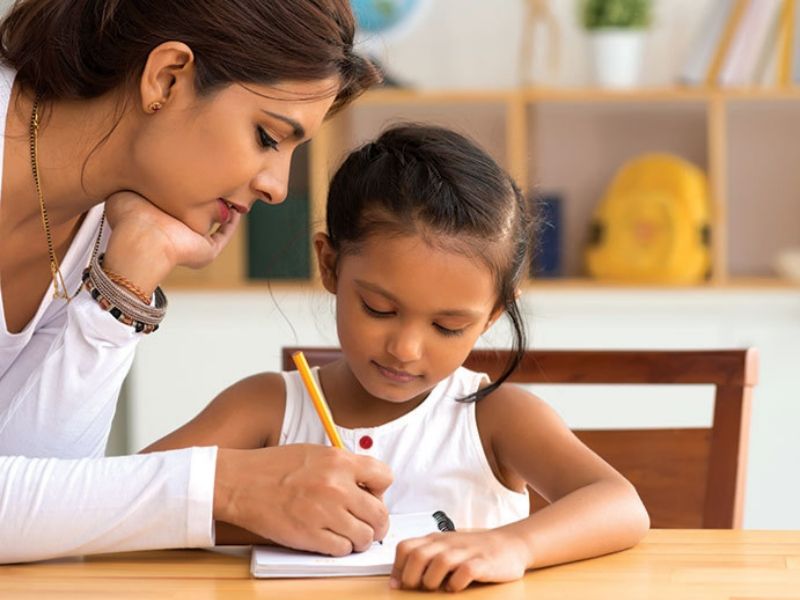

After the outbreak of pandemic COVID 19, the role of parents had increased a lot. Online classes were possible only because of the effective role of parents from their homes. After unlock down of the country in systematic phases, the role of parents increased tremendously.
The parents should understand that the pandemic had also affected the schools too. The concept of ‘No School No Fees’ should be kept aside for the overall development of the students. The teachers and management are working more than their regular teaching days for the benefit of the students. Within short span of time teachers learned technology and are readily imparting online teaching without any hassles.
There are many private schools across the country are at the verge of shut down. They can only revive with the help of parents. No doubt, all schools require financial help from the parents but they also need the inputs for the betterment of the institute by all means.
A balance of education at home and school molds a student’s actual learning. Parental encouragement had played a crucial role in successful students. Their role is not limited to home but involvement in school activities too. The importance of parents for education is obvious from the direct links between people’s family background and their probability of success in and through education. In today’s competitive world genetic factors, wealth and family networks are important for children’s education outcomes.
If we want our parents to involve in the preparation of the school curriculum, we have to get their active and regular participation of our parents. Parent-teacher planning can improve the quality of education which is being provided by both the parents and school. We must remember that the parents have primary responsibility for their children. No doubt they pay to school, but they are in a better position to know their children more intimately than the teachers. Parents are much more aware of their problems and concerned resources – which is an important part of our curriculum material. They have certain know-how, which we must use to have richness and reality in our curriculum.
When students feel supported at home and school, they develop more positive attitudes about school, have more self-confidence, and place a higher priority on academic achievement. Children of the involved parents are more likely to feel that they’re accepted, involved, and respected at school. When parents become involved in their children’s education, they become more comfortable in the school building, gain confidence in their parenting skills, and feel more capable of helping their children learn. They’re also more likely to continue their education. It has been observed that parent involvement can help in improving the quality of schools, raise teacher morale, and improve a school’s reputation in the community. Involved parents gain the respect of teachers; as a result, teachers have higher expectations from their children. Involvement pays off in the long term to both parents as well as school.
Now the time had come to switch over or upgrade and invite our parents into the school curriculum. It is acknowledged that the schools cannot educate children on their own and will be benefitted only by building a genuine relationship with their parents and local communities. Parents are important for students’ academic achievements and social-emotional development. Therefore, the first teacher of a student should be welcomed in the school curriculum. However, in teacher education programmes this topic is not at all addressed due to already overloaded programmes.
When parents are involved with the school for upgrading their children’s education, children do better on a range of various measures
- Their overall behaviour is very good.
- Their motivation level is at the highest point.
- They have a greater sense of self-esteem.
- Their attendance in academic as well as towards sports is higher.
- The high risk of non-participation is reduced.
- They show more eagerness towards learning.
- They strive for better results.
- The gap between children from different socio-economic backgrounds is reduced.
Despite evidence of the positive effects of parent involvement, its potential is still largely ignored by many schools. Teachers do not systematically encourage parent’s involvement, and parents do not always participate when they are encouraged to do so. Several major barriers to their involvement exist in our school system. School environment may discourage parents involvement, due to the lack of adequate time and training of teachers and a predominant institutional culture in the schools that place little value on the views and participation of parents’ in our country.
It is very true that the partnership between educational institutions, teachers and parents can influence students’ academic achievements, social development and sense of well being in all levels of education.
The parents should volunteer the school in counselling to the students and by sharing their rich experience of life can motivate the students for better future and career choices. Community events can be arranged to make more parents comfortable in the school environment. The parents can provide suggestions to the school directly, which can be through formal or informal ways. Communications can be made with the parents depending on their preferences. Sharing of information with parents to update them on that year’s learning expectations and goals, exams and other important dates through information bulletins and text messages.
Responsibility and accountability towards the well being of the students should lie on the shoulders of the school as well as the parents. Respectful communication from both parties can help in the overall development of a student in a better and concentrated effort.
Now in the Generation – X era, we have to shake our hands with the parents inviting them to enter the partnership with school and understand that… 1+1 = 11 not 2……..
Other articles by the author:
Adopting a teaching career during COVID-19
The views, thoughts, and opinions expressed in the article belong solely to the author, and not necessarily reflect the views, thoughts, and opinions of EducationWorld.
